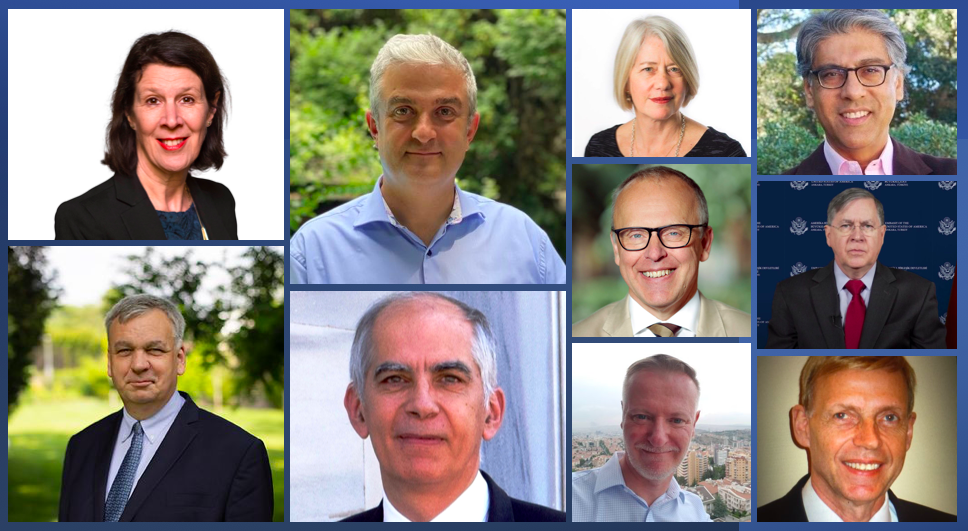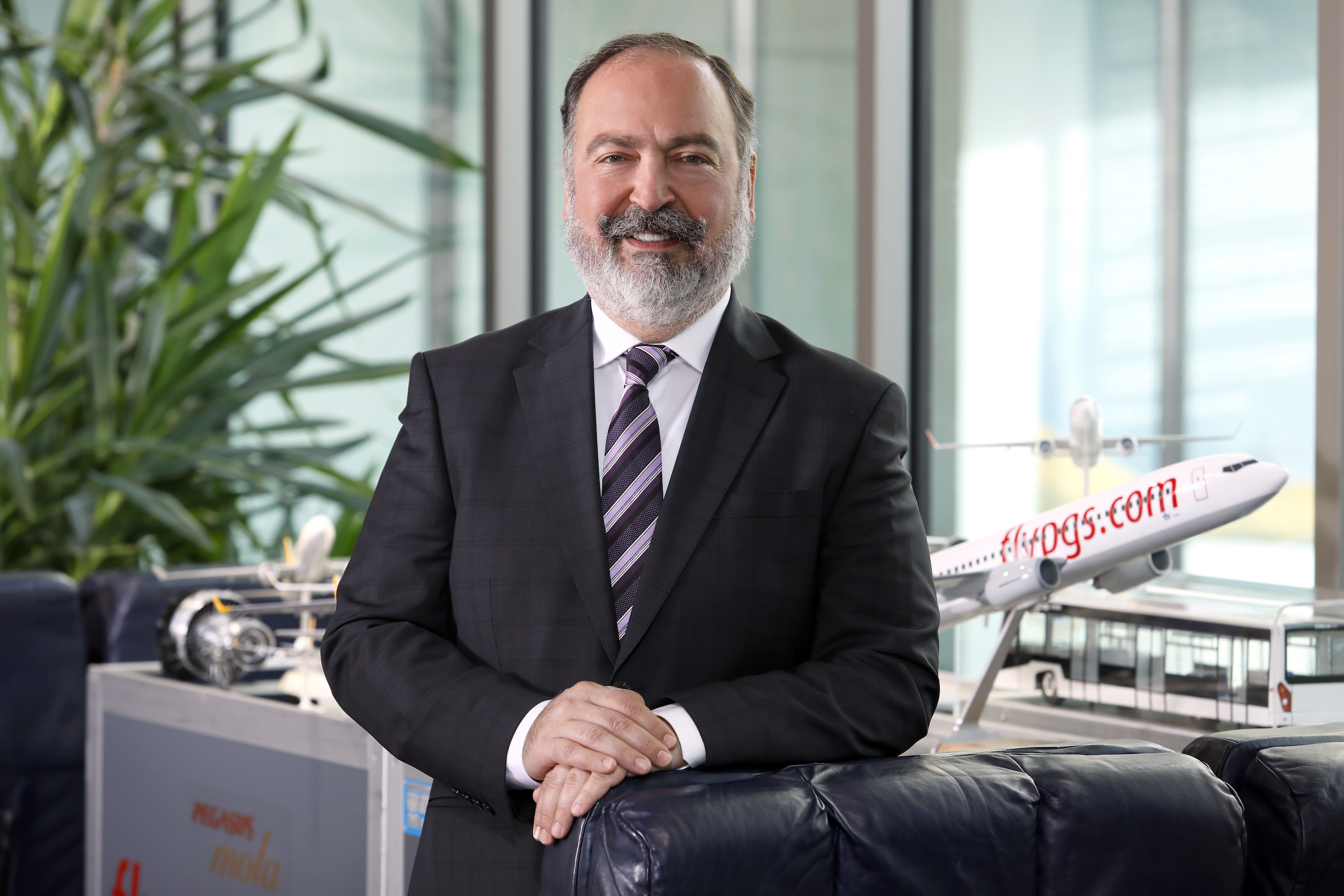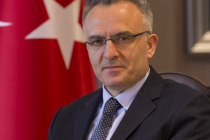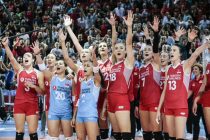A major diplomatic crisis involving the ambassadors of ten countries in Ankara has been averted. The ambassadors had been threatened with expulsion from Turkey after making a critical statement about jailed businessman and philanthropist Osman Kavala.
Turkey’s President Recep Tayyip Erdoğan had declared the ambassadors of Canada, Denmark, Finland, France, Germany, the Netherlands, New Zealand, Norway, Sweden, and the United States “persona non grata” (unwelcome persons) after they claimed the case of Mr Kavala had “cast a shadow over respect for democracy, the rule of law and transparency in the Turkish judiciary”.
First detained on 18 October 2017, Mr Kavala, 64, remains imprisoned despite there being no convictions against him.
In December 2019, the European Court of Human Rights (ECHR) said that Mr Kavala’s prolonged pre-trial dentation was a violation of his human rights and ruled that he should be freed immediately.
Issuing their statement on the fourth anniversary of Mr Kavala’s detention, the ten ambassadors called for “a just and speedy resolution to his case” and demanded “his urgent release.”
10 ambassadors’ statement calling for Osman Kavala’s release
The joint statement, made on 18 October 2021, in full read: “Today marks four years since the ongoing detention of Osman Kavala began. The continuing delays in his trial, including by merging different cases and creating new ones after a previous acquittal, cast a shadow over respect for democracy, the rule of law and transparency in the Turkish judiciary system.
“Together, the embassies of Canada, France, Finland, Denmark, Germany, the Netherlands, New Zealand, Norway, Sweden and the United States of America believe a just and speedy resolution to his case must be in line with Turkey’s international obligations and domestic laws. Noting the rulings of the European Court of Human Rights on the matter, we call for Turkey to secure his urgent release.”
Bugün, Osman Kavala’nın tutuklanmasının dördüncü yıl dönümü. Hakkında devam eden dava, Türkiye’de demokrasi ve hukukun üstünlüğüne gölge düşürmektedir.
Bugün, 🇩🇪🇫🇷🇳🇿🇨🇦🇫🇮🇸🇪🇳🇴🇺🇸 ile birlikte 🇩🇰, Kavala’nın serbest bırakılması çağrısında bulunmaktadır. Açıklamanın tamamı için: pic.twitter.com/iJsio3fomF
— Danny Annan (@DKAmbTurkey) October 18, 2021
The statement infuriated President Erdoğan, who accused the ambassadors of overstepping the boundary of diplomatic conduct in a foreign country. He publicly instructed the Turkish Foreign Ministry to expel the diplomats, sending shockwaves around the world.
Speaking at a rally in Eskişehir last Saturday, the Turkish president said: “I gave the instruction to our foreign minister and said, ‘You will immediately handle the persona non grata declaration of these 10 ambassadors.”
“They will recognise, understand and know Turkey. The day they don’t know or understand Turkey, they will leave,” the president continued.
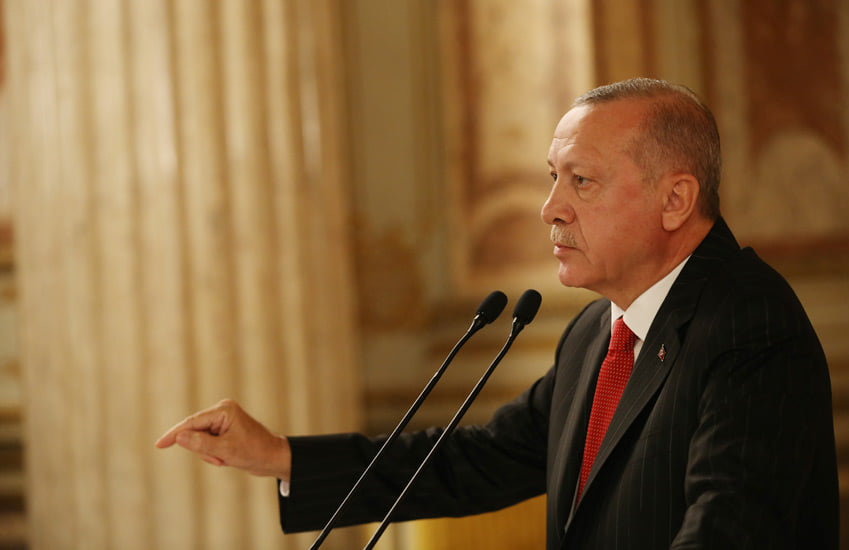
The ten Western envoys represent some of Turkey’s most important security and trading partners, with seven of the ten countries Turkey’s NATO allies.
Relations between Turkey and the West are already strained over multiple issues. Had the threatened diplomatic sanctions materialised, they would have created the greatest rift between the Turkish leader and his western allies in Erdoğan’s 19 years in charge of Turkey.
By Tuesday, however, although the ten ambassadors had been summoned to the Foreign Ministry for a dressing down, no formal notification about their expulsions had been sent to their governments.
The embassies of the ten countries had managed to take the sting out of the situation by issuing identical statements on Twitter on Monday affirming their commitment to Article 41 of the 1961 Vienna Convention on Diplomatic Relations.
The first clause in Article 41 of the Convention states that while diplomats enjoy “privileges and immunities”, they also have a duty “to respect the laws and regulations of the receiving State” and “not to interfere in the internal affairs of that State.”
— U.S. Embassy Turkey (@USEmbassyTurkey) October 25, 2021
The tweets allowed the Turkish government to take a step back from its expulsion threat.
“We believe that these ambassadors, who have fulfilled their commitment to Article 41 of the Vienna Convention, will now be more careful in their statements,” President Erdoğan said following a three-hour Cabinet meeting in Ankara.
While the overt threat subsided, the 10 envoys found themselves frozen out of Turkey’s Republic Day celebrations at the Presidency on Friday, 29 October. According to local media reports, none of the ten ambassadors had received an invite to attend the annual event.
About the Osman Kavala case
Osman Kavala is a businessman who inherited the family business at the age of 25 when his father died. He has since grown the Kavala group of companies, whose interests include electronics and telecommunications, but for the past two decades has spent more time on civil society.
Mr Kavala has sponsored events and organisations that promote dialogue and harmony in Turkish society, and also strengthen Turkey’s democracy and its integration with the European Union.
His civil society work included being on the board of the Open Society Foundation, funded by financier George Soros. Mr Soros has been accused of various international leaders including President Erdoğan of fomenting anti-government dissent.
Mr Kavala found himself caught up in this spat, and he was implicated in financing and organising the months-long Gezi Park protests against the Erdoğan government in 2013.
Although no evidence existed, he was arrested and charged in 2017 over his alleged role in the violence that erupted during the 2013 Gezi Park protests. Kavala was acquitted on charges last year, but a higher court overturned the decision, paving the way for further judicial proceedings.
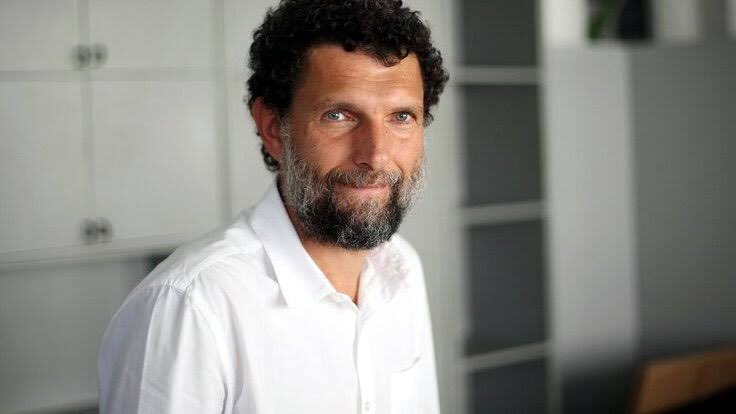
The verdict was overturned, and he was set to be freed on 18 Feb. 2020. However, on the same day new charges were brought against Mr Kavala, this time for his alleged involvement in the 2016 attempted coup in Turkey.
In December 2019, the ECHR ruled that his detention took place without sufficient evidence that he had committed an offence, and that keeping him in pre-trial jail was in violation of his right to liberty and security under the European Convention on Human Rights.
The ECHR also found that Mr Kavala’s arrest and pre-trial detention pursued an ulterior purpose, stating that it amounted to an attempt to silence him and dissuade other human rights defenders from acting.
In addition, the length of time taken by Turkey’s Constitutional Court to review Mr Kavala’s complaint was insufficiently “speedy”.
The European court concluded that the Turkish government needed to take every measure to put an end to the applicant’s detention and to secure his immediate release.
Osman Kavala says no longer possible to receive a fair trial
Yet two years on, and the Turkish authorities have failed to act on the ECHR’s ruling. More significantly, President Erdoğan’s disparaging comments about Osman Kavala the day after the 10 ambassadors issued their statement has convinced the civil society leader he can no longer receive a fair trial.
On his way back from a trip to Africa, responding to a question from a journalist President Erdoğan told reporters on the plane:
“Look, now the ECHR has taken a decision. They almost want to condemn Turkey here regarding this Soros extension called Kavala. Why do 10 ambassadors make this statement? Those who defend this Soros scum are trying to get rid of it. I told our Minister of Foreign Affairs that we cannot afford to host them in our country.
“Is it your place to teach such a lesson to Turkey? Who are you? What is it? ‘Release Kavala.’ Do you release the bandits, murderers, terrorists in your own country? America, Germany, which one has ever done such a thing? When he speaks, the answer they will give you is, ‘the judiciary is independent.’ Is your judiciary independent, but our judiciary biased?”
#OsmanKavala’dan açıklama❗️
“Bu şartlar altında adil bir yargılama yapılmasına imkân kalmadığından, bundan sonra duruşmalara katılmamın ve savunma yapmamın anlamsız olacağına inanıyorum.”#OsmanKavalayaÖzgürlük
➡️ https://t.co/xWF0Mnvzkt pic.twitter.com/MRwxTXhcyW
— Kavala’ya Özgürlük (@FreeOsmanKavala) October 22, 2021
Following the comments of the Turkish President, Mr Kavala has said he will no longer appear in court hearings as he believes he can no longer receive a fair trial in Turkey.
“Since there is no possibility of a fair trial under these circumstances, I believe participating in hearings and delivering my defence will be meaningless from now on,” Kavala said in a written statement which was published on his Twitter.
Osman Kavala’s next hearing is scheduled for 26 November.
Main image, top, 10 ambassadors in Ankara threatened with expulsion, clockwise from top left: Dutch Ambassador Marjanne de Kwaasteniet, Danish Ambassador Danny Annan, New Zealand Ambassador Wendy Hinton, Canadian Ambassador Jamal Khokhar, American Ambassador David M. Satterfield, Norwegian Ambassador Erling Skjønsberg, Finnish Ambassador Ari Mäki, French Ambassador Hervé Magro, German Ambassador Jürgen Schulz (bottom left), and Swedish Ambassador Staffan Herrström (centre middle).


